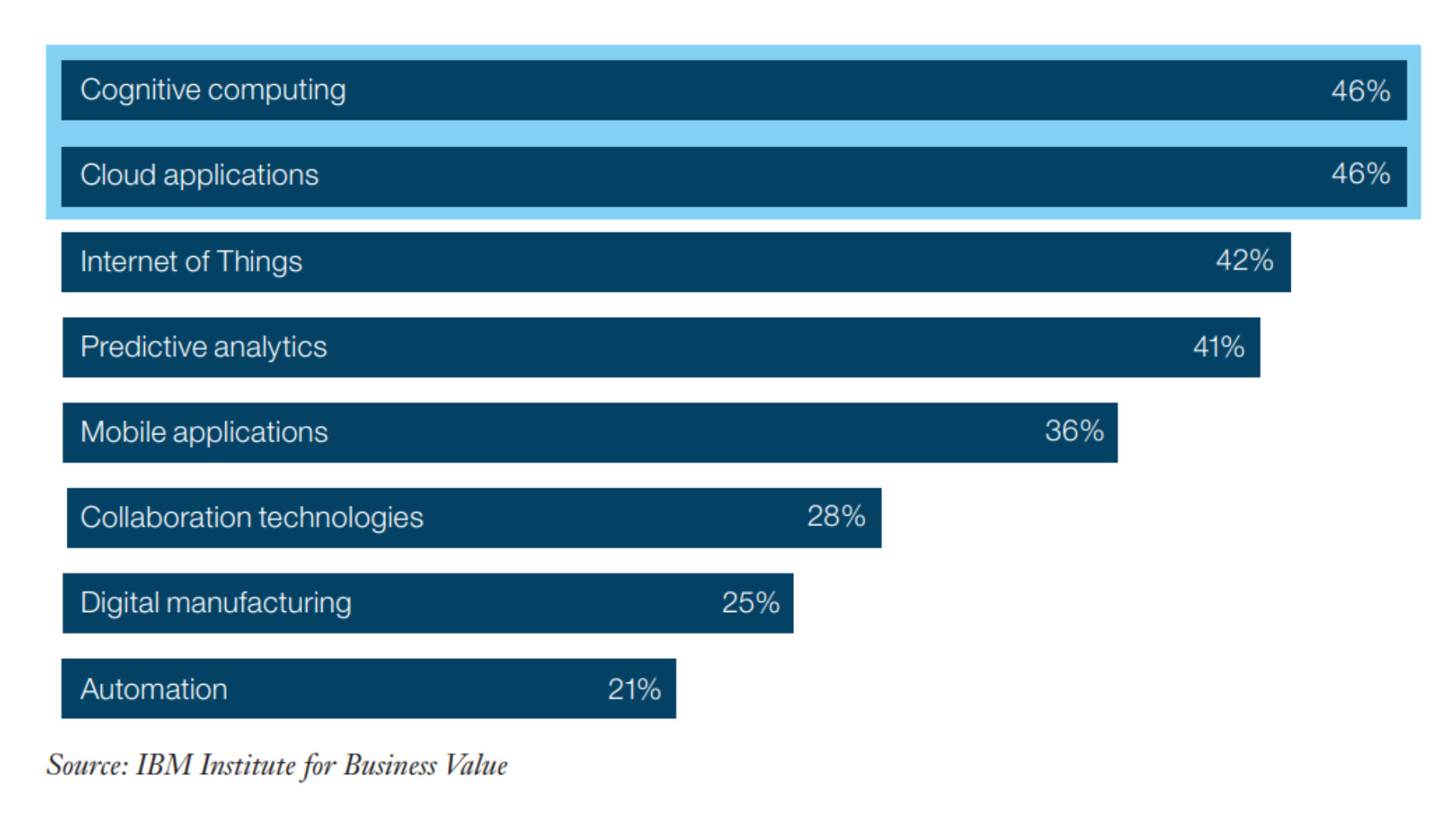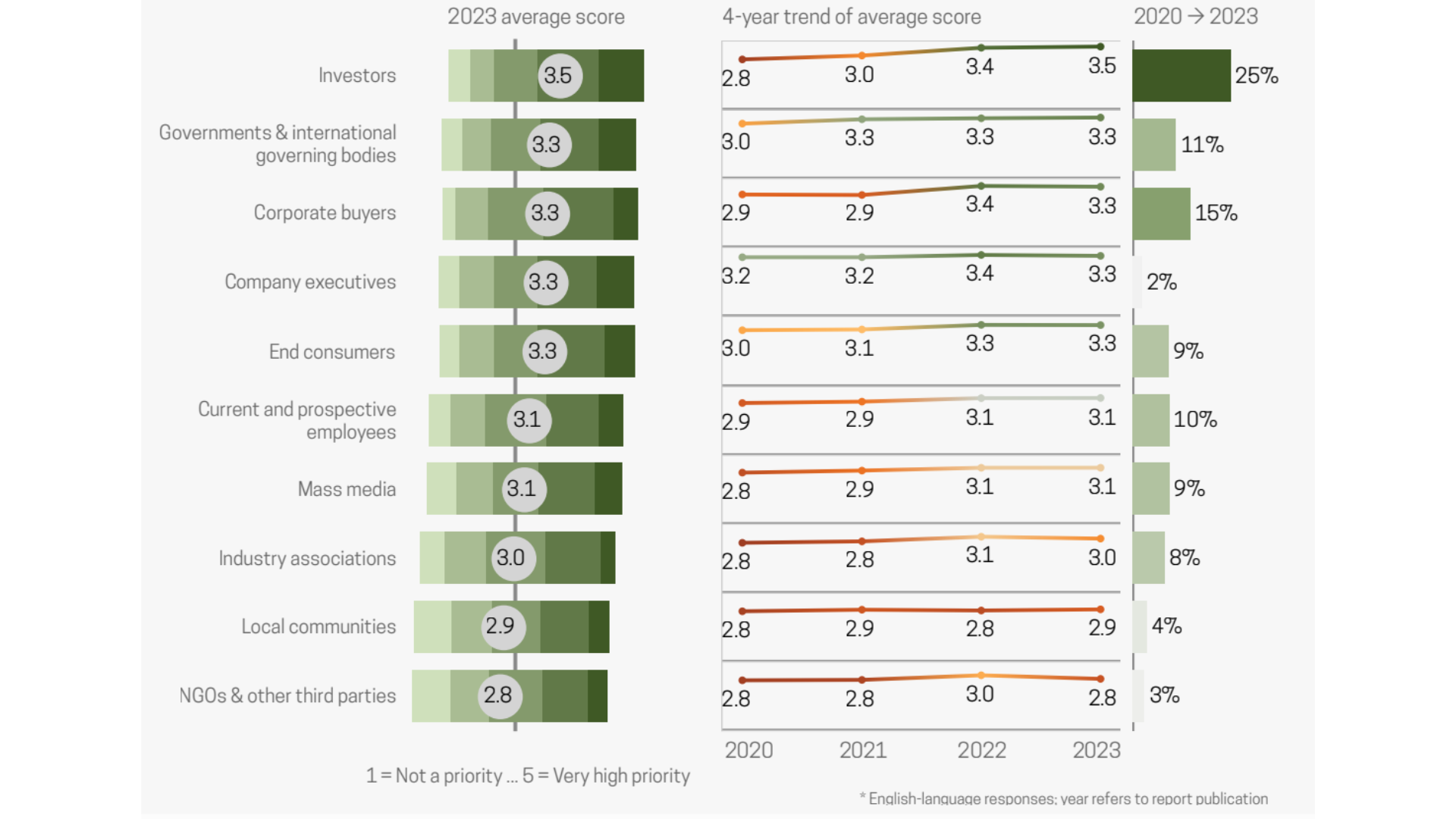- News & Insights
- 2024
- The three key trends shaping the supply chain industry in 2024
News & Insights
The Supply Chain in 2024
The three key trends shaping the supply chain industry in 2024
A shift driven by technology and environmental considerations is set to shape the industry's trajectory in 2024.
In this blog post, we look into the pivotal trends that will redefine the way supply chains operate and evolve in 2024. A shift driven by technology and environmental considerations is set to shape the industry's future. Follow along as we explore the transformative forces guiding supply chains toward greater resilience and flexibility this year.
Supply chain digitalization will drive growth
The primary trend of 2024 continues to be the digitalization of supply chain management. Transparency and visibility remain critical for resilient and diversified supply chains, allowing quick recognition of the impact of external events. By introducing tools and systems allowing them to track and trace the conditions of their logistic chains in real-time, businesses can quickly increase the visibility of the inefficiencies in their flows and improve product handling. In fact, many companies are already taking action and investing millions of dollars in upgrading their digital capabilities to answer the need for real-time visibility and better demand planning. According to Gartner’s forecast for 2024, approximately half of supply chain entities are expected to allocate resources toward implementing software applications that facilitate artificial intelligence (AI) and advanced analytics functionalities.1 Big data and analytics are pivotal in informed decision-making and operational efficiency, marking a shift toward predictive analytics in 2024.

According to IBM research, supply chain executives anticipate that the most significant investments in digital operations in the upcoming three years will be directed toward cognitive computing and cloud applications.2
Outsourcing logistics will gain momentum
The interplay of pandemic, weather events, and conflicts has wrought transformative effects on supply chains, prompting a paradigm shift in economic realities. This evolving landscape requires smart cost allocation to develop a responsive supply chain. The imperative is to create a supply chain capable of swift adjustments, utilizing resources based on demand fluctuations. This imperative has propelled the adoption of Supply Chain as a Service (SCaaS) and Third Party Logistics (3PL) by an increasing number of businesses. The studies have shown that 3PL services improve the response time, quality, and promptness of deliveries, but also reduce supply chain distribution expenses. Partnering with a contract logistics provider helps save costs, time, and resources, while optimizing the logistics process and providing visibility into the supply chain. While Software as a Service (SaaS) has long been a staple, the trend toward outsourcing components of the supply chain, encompassing manufacturing, distribution, procurement, logistics, or transportation management, is gaining momentum.
The focus on sustainability is intensifying
Sustainability is gaining prominence in the business landscape, and the supply chain is no exception to this growing trend. Driven by the expectations of consumers, investors, and regulators to minimize environmental impact, businesses are set to intensify their efforts in adopting sustainable practices within their supply chains in 2024. This entails embracing eco-friendly packaging, optimizing transportation routes for fuel efficiency, and integrating green technologies. Establishing a robust emissions baseline is vital for monitoring progress and setting ambitious reduction targets. Supply chain leaders are turning to Life Cycle Analysis tools, to measure carbon emissions effectively. What’s more, the LCAs facilitate seamless integration into a company's sustainability reporting.

In 2023, the impetus for companies to opt for more sustainable solutions predominantly stemmed from the pressure exerted by investors.3
Brace yourself for a supply chain transformation
In 2024, the supply chain industry is undergoing significant transformations centered around three key trends: digitalization, building resilience, and sustainability. While these trends are not new, their impact is expected to strengthen this year. Companies looking to stay ahead of the curve should embrace these changes and initiate transformative efforts. To prepare for the evolving landscape, companies must assess their current position, explore possibilities, and determine the most efficient way to implement the forward-looking changes.
Based on over 70 years of experience working together with businesses to build more resilient, innovative, and sustainable supply chains, at Nefab, we believe that the key to successful transformation is an organization-wide commitment to change and choosing the right partner for your journey. We see customers as Partners, and we strongly believe that strengthening ties is the best way to success.
We save resources in supply chains for a better tomorrow.
Want to learn more?
GET IN TOUCH
Contact us to learn more about our smart and sustainable solutions.
LEARN MORE
GreenCalc
Nefab’s own certified calculator measures and quantifies financial and environmental savings in our solutions
Sustainable Solutions
Engineered packaging for sustainable supply chains
Sustainable Materials
Fiber-based packaging and raw materials

